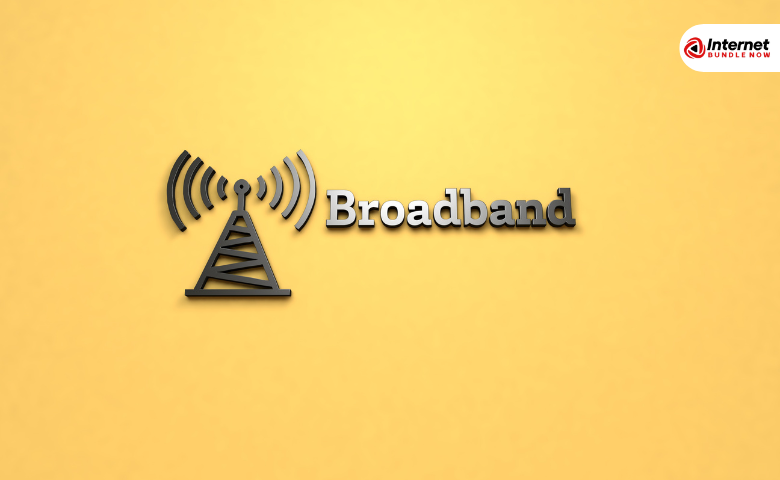- TV
How to Get Premium Channels with Your Cable TV Bundle?
Access to exclusive entertainment content is a priority for many viewers seeking a richer television experience. Premium chan...
Explore More
Internet technology has transformed how we work, learn, and connect with the world. The advent of 5G internet has sparked conversations about its potential to revolutionize connectivity. Traditional broadband, a staple for decades, faces competition from 5G’s innovative capabilities. At Internet Bundle Now, a trusted Internet Service Provider, we provide insights into these technologies and how they serve different needs with High Speed Internet Plans and exceptional Internet Customer Service.
5G is the fifth generation of wireless technology, designed to deliver ultra-fast speeds, low latency, and enhanced connectivity. Unlike traditional wired connections, 5G uses advanced infrastructure, including small cells and high-frequency bands, to transmit data wirelessly. With its ability to support massive device networks and provide real-time responses, 5G represents a significant leap forward in internet technology.
Traditional broadband encompasses internet services delivered through wired infrastructure such as fiber-optic, cable, and DSL connections. These technologies rely on physical networks to transmit data, offering stable and consistent internet access. Fiber broadband, in particular, is renowned for its high-speed capabilities, while DSL and cable are widely available and cost-effective options for basic internet needs.
Speed
5G internet offers peak speeds that far exceed traditional broadband, particularly in ideal conditions. With speeds reaching up to 10 Gbps, 5G enables activities like seamless 4K streaming, immersive gaming, and rapid file transfers. Fiber-optic broadband, however, remains highly competitive, offering gigabit speeds for consistent and reliable performance.
Latency
Low latency is a defining feature of 5G, with response times as low as 1 millisecond. This makes 5G ideal for real-time applications such as online gaming, video conferencing, and emerging technologies like augmented reality. While fiber broadband also offers low latency, DSL and cable often lag behind in this aspect.
Coverage
5G coverage is still expanding and is currently concentrated in urban areas. Its reliance on high-frequency bands can result in signal interference from buildings and environmental factors. Traditional broadband, especially fiber and cable, benefits from established infrastructure that provides widespread coverage, even in many suburban and rural areas.
Reliability
Wired broadband connections are known for their stability and resistance to external factors such as weather. While 5G excels in speed, it may experience reliability challenges due to physical obstructions and network congestion in densely populated areas.
Device Connectivity
5G’s ability to connect millions of devices simultaneously makes it ideal for smart homes, IoT networks, and densely populated locations. Traditional broadband, while effective for smaller networks, can face limitations when supporting multiple high-bandwidth devices.
Cost
The cost of 5G internet is often higher due to its advanced technology and newer infrastructure. In contrast, traditional broadband offers a range of affordable options, particularly through bundled High Speed Internet Plans from Internet Bundle Now.
Mobility and Flexibility
5G provides portable connectivity, making it ideal for on-the-go users and areas without established wired infrastructure. Its wireless nature eliminates the need for fixed installations, enabling greater flexibility.
Enhanced Performance for Emerging Technologies
With its ultra-fast speeds and low latency, 5G supports cutting-edge applications such as telemedicine, autonomous vehicles, and smart cities. It empowers industries and consumers alike to embrace innovative digital experiences.
Potential to Close the Digital Divide
In underserved areas where wired broadband is unavailable, 5G has the potential to bridge the gap by providing wireless high-speed internet access.
Proven Reliability
Traditional broadband, particularly fiber-optic connections, offers unmatched reliability for households and businesses. It delivers stable speeds and consistent performance, even during peak usage times.
Scalability for High-Bandwidth Users
Fiber broadband is capable of handling the demands of multi-user households, heavy streaming, and data-intensive applications. It remains a dependable choice for work-from-home professionals and large families.
Cost-Effective Options
With a variety of plans available, broadband provides affordable connectivity solutions for diverse needs. Bundled services from Internet Bundle Now further enhance value by combining internet, TV, and phone services.
When to Choose 5G Internet
5G is the best choice for users who prioritize mobility, low latency, and cutting-edge technology. It’s ideal for gamers, tech enthusiasts, and those in areas without access to wired broadband.
When to Choose Traditional Broadband
For households and businesses that require reliable, high-speed connectivity for multiple users and devices, traditional broadband remains the superior option. It’s particularly advantageous for environments requiring stable performance.
The Future of Internet Connectivity
The future lies in hybrid solutions that combine the strengths of 5G and traditional broadband. As 5G coverage expands and broadband technologies evolve, these services will complement each other, ensuring seamless connectivity for all users.
Both 5G and traditional broadband offer unique advantages, and the choice depends on your specific requirements. Internet Bundle Now provides tailored High Speed Internet Plans and expert Internet Customer Service to help you find the perfect solution. Whether you’re seeking the innovation of 5G or the reliability of broadband, our services deliver unmatched value and performance. Contact Internet Bundle Now to upgrade your connectivity today.
Latest insights, tips, and updates from our experts.
George
What is 5G Internet and How Does It Compare to Traditional Broadband?